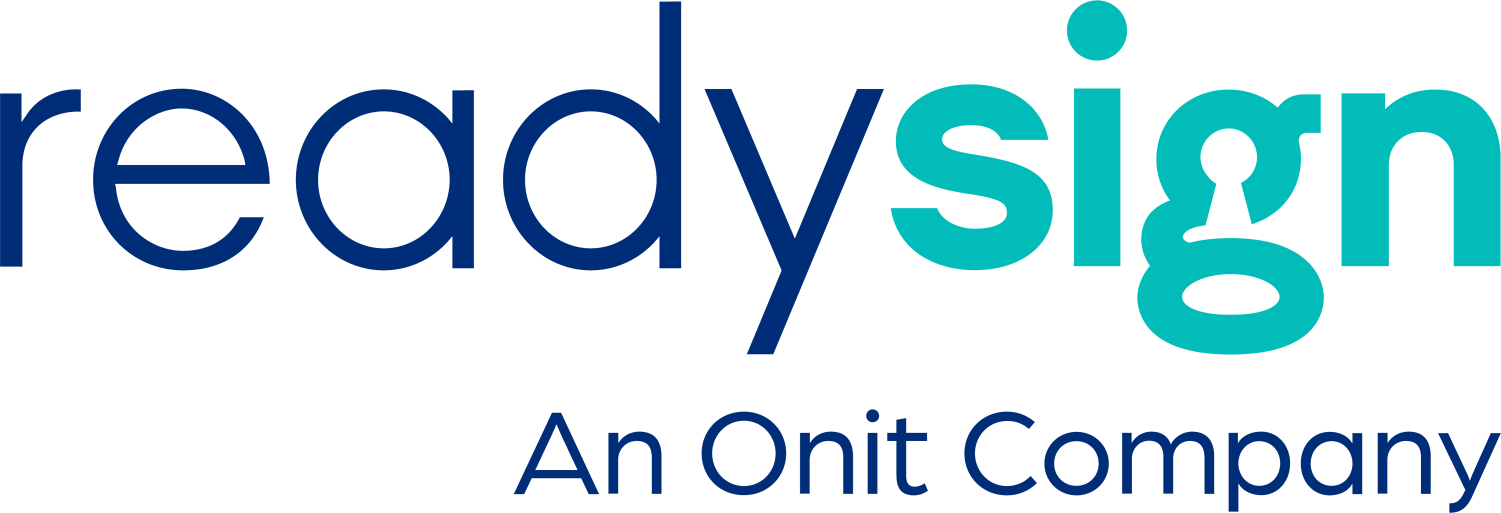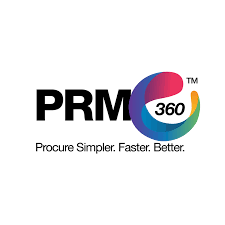What Is Contract Management Software?
A digital tool called contract management software was created to help organizations create, negotiate, and manage contracts more quickly and automatically. Because manual management can be ineffective, time-consuming, and prone to errors, it is an essential tool for businesses with large contract volumes. Fundamentally, contract management software enables companies to keep track of, monitor, and retrieve all of their contracts in a single, central area.
This improves visibility and coordination amongst the several teams participating in the contract lifecycle and does away with the necessity for paper-based filing systems. Features like electronic signatures, document version control, customizable templates, and contract tracking and notifications are also included in the majority of contract management software. These characteristics assist companies in lowering financial and legal risks, guaranteeing compliance, and enhancing the procedures of contract execution and negotiation.
Furthermore, a smooth transfer of data and information between various departments and systems is made possible by the frequent integration of contract management software with other business tools including project management tools, procurement software, and customer relationship management (CRM) systems. It is essential to take into account aspects like customer support, security features, scalability, customization possibilities, and ease of use while selecting contract management software.
Finding the best software that fits your contract management procedures and needs requires evaluating the unique needs and objectives of your company. Your company can gain a lot from investing in contract management software, such as improved contract performance tracking, cost savings, increased productivity, and enhanced decision-making through sophisticated analytics and reporting. You may provide your company a competitive edge and increase overall productivity by automating and optimizing your contract management procedures with the correct software.
What Are The Recent Trends In Contract Management Software?
Businesses of all sizes have been using contract management software far more frequently in recent years. The main causes of this are the growing complexity of contracts and the requirement that businesses effectively manage their contract lifetime. The market for contract management software has seen a number of changes and trends as technology advances. We will examine current contract management software trends in this buyer's guide to assist you in selecting the best option for your company.
1. Solutions Based On The Cloud: The move to cloud-based solutions is one of the biggest developments in contract management software. Because users may access the program from any location with an internet connection, these systems provide more accessibility and flexibility. Furthermore, cloud-based solutions save organizations money by doing away with the requirement for pricey IT infrastructure and hardware.
2. Automation and AI Automation: And artificial intelligence (AI) have improved the accuracy and efficiency of contract administration software. By assisting with duties like contract creation, review, and tracking, these technologies can save users time and lower the possibility of human error. Better data analysis and reporting are also made possible by AI and automation, which offer insights on contract performance and patterns.
3. Apps For Mobile Devices: The creation of mobile applications that let users manage their contracts while on the go is another trend in contract management software. Users may remain on top of their contract management tasks more easily with the help of these apps, which offer the convenience of accessing crucial papers and contract details from a mobile device.
4. System Integration: In order to increase productivity and expedite corporate procedures, contract management software is increasingly being connected with other systems, including CRM and ERP. By facilitating smooth departmental communication, this integration lowers the possibility of data inaccuracies and duplication.
5. Improved Security Functionalities: Data security is a major worry for businesses as cyber threats continue to change. Contract management software now has sophisticated security features like encryption and secure storage to solve this problem. This guarantees that confidential contract data is always protected.
Benefits Of Using Contract Management Software
The entire contract lifecycle from inception to execution and renewal can be streamlined and automated with the help of contract management software. Contract management done by hand can be laborious, prone to mistakes, and ineffective in the fast-paced business environment of today. This is the role of contract management software, which offers businesses a number of advantages that eventually result in higher productivity, better contract results, and enhanced compliance.
Let's examine the advantages of contract management software in more detail.
1. Centralized Contract Repository: Having a centralized location to keep all of your contracts is one of the main advantages of contract management software. This eliminates the need to sift through countless files on your computer or mountains of paperwork. All of your contracts are kept in a single, safe location that authorized people may simply access when you utilize contract management software. Better organization, version control, and simpler contract retrieval are the results of this.
2. Enhanced Efficiency: human contract management procedures take a lot of time and involve numerous stakeholders' human input and approval. These procedures are automated with contract management software, which saves you time and lowers the possibility of human error. Additionally, automated workflows streamline the contract lifecycle and cut down on delays by ensuring that contracts are sent to the appropriate parties for evaluation and approval.
3. Better Compliance: Managing contracts may be a difficult and heavily regulated process with a number of compliance standards to follow. Through visibility into contract terms, important dates, and compliance requirements, contract management software assists firms in adhering to industry rules and internal policies. This reduces the possibility of fines or legal issues in addition to guaranteeing compliance.
4. Advanced Contract Tracking: Keeping track of contracts by hand can be difficult, particularly if you are in charge of several contracts. With the help of contract management software's sophisticated monitoring features, you can keep tabs on critical dates, follow the status of your contracts, and create automated reminders for significant contract events. This helps you remain on top of your contract commitments and guarantees that no deadlines are missed.
5. Improved Contract Insight: By enabling you to examine contract data and spot patterns, contract management software also offers insightful information about your contracts. Businesses can use this information to negotiate better contract conditions in the future and make data-driven decisions. Better vendor relationships, higher cost reductions, and better contract outcomes result from this.
Important Factors To Consider While Purchasing Contract Management Software?
To make sure you are choosing the best contract management software for your company, there are a few critical elements to take into account. Both the overall return on investment for the software and the efficacy and efficiency of your contract management procedures may be significantly impacted by these aspects. When assessing and contrasting various contract management software choices, bear the following points in mind:
1. Features And functionality: The contract management software's features and functionalities ought to be the primary factor taken into account. From creation and review to renewal and expiration, it should contain all the functionality required to manage the full contract lifetime. Customizable templates, automated workflows, compliance monitoring, e-signature capabilities, and document management are a few crucial elements to consider. Evaluating the software's compatibility with other tools and systems that your company employs is also crucial.
2. User-Friendliness: The program should have an intuitive interface that makes it simple to use and explore. If you have several users who will need to access and work on contracts, this is especially crucial. Software that is difficult to understand or complex can cause errors and delays, which can be expensive for your company. Before making a purchase, be careful to ask for a demo or trial of the software to assess how user-friendly it is.
3. Flexibility And Customization: The software should be able to accommodate the various contract management requirements of any company. Seek out software that allows for customization, including the creation and saving of unique fields, templates, and workflows. Additionally, it must be adaptable enough to alter as your business procedures do.
4. Security And Data Protection: It is essential to make sure that the software has the right security measures in place because contracts frequently contain sensitive information. To keep track of modifications and activity within the software, look for features like audit trails, user permissions, and data encryption. To further guarantee the protection of your data, find out about the vendor's security procedures and certifications.
5. Scalability And Cost: When choosing contract management software, take your present and future requirements into account. Will your expanding company and rising contract quantities be supported by the software? Given the features and functionalities it provides, is the pricing fair? To select the software that best suits your needs now and in the future, be careful to evaluate the pricing and scalability of several solutions.
6. Customer Service: Just as with any software, having dependable customer service is essential in case you run into problems or have inquiries. Seek out software providers who provide committed customer service, ideally with several avenues for contact, including live chat, email, and phone. To gauge the caliber of the vendor's customer service, it is also beneficial to study reviews and acquire recommendations from existing clients. Your company can gain a lot from implementing contract management software, but before making a purchase, it is important to thoroughly consider and compare your options. You can select a software program that best meets your company's requirements, expedites your contract administration procedures, and fosters expansion and success by taking these crucial aspects into account.
What Are The Key Features To Look For In Contract Management Software?
It might be difficult to choose the best contract management software for your company because there are so many options available. Here are the essential characteristics of contract management software to help you make your choice:
1. Centralized Contract Repository: All of your contracts and associated paperwork should be kept in one place via a contract management system. This lowers the possibility of losing or misplacing crucial documents by making it simpler to access and manage contracts.
2. Customizable Templates: Seek out software that has contract templates that may be altered. Your team can construct contracts more easily with this functionality, which saves time and guarantees uniformity across all contract agreements.
3. Contract lifetime Management: From creation and negotiation to signature and renewal, the software should have the capabilities to handle every stage of the contract lifetime. Additionally, it ought to have tools for monitoring contract deadlines and milestones.
4. Electronic Signature: You can speed up and improve the efficiency of the contract signing process by doing away with the requirement for physical signatures thanks to electronic signature capabilities. Additionally, this functionality guarantees that all signed contracts are safely kept within the system.
5. Advanced Search And Reporting: The program must to include a strong search feature that enables you to locate particular contracts or contract provisions with ease. Additionally, it must to produce reports that offer information on contract performance, impending renewals, and other important parameters.
6. Collaboration And Workflow Management: Your team can collaborate and manage workflows with ease while creating and reviewing contracts. This lowers the possibility of mistakes and expedites the contract approval procedure.
7. Integration With Other Systems: To guarantee data integrity and optimize workflows, look for software that interacts with other systems, such as CRM or project management applications.
8. Security And Compliance: The software should have robust security mechanisms in place to protect your data because contracts contain sensitive information. Additionally, it must adhere to industry rules like HIPAA and GDPR.
9. User-Friendly Interface: The program should have an intuitive user interface that is simple to use and requires little instruction. All employees can utilize the system more easily as a result, which increases production and saves time.
10. Cost And Scalability: Take into account the software's cost and scalability as your company expands. Choose software that can handle future expansion and provides various price options. To sum up, these are the main characteristics to consider while selecting contract management software. To efficiently manage your contracts and improve your operations, assess your company's demands and choose the software that best suits them.
Why Do Businesses Need Contract Management Software?
Processes that are streamlined and efficient are essential as firms continue to expand and change. Contract management is one area that is frequently disregarded but is crucial to effective operations. Any business connection is built on contracts, which also have a big effect on the bottom line of the organization. Software for contract management can help with it. A specific tool called contract management software was created to assist companies in overseeing the whole contract lifetime, from inception to execution and beyond. It gives businesses complete insight and control over their contract management procedures by offering a centralized platform for storing, tracking, and monitoring all contracts.
Businesses use contract management software for the following reasons.
1. Increased Productivity And Efficiency: Manual contract management procedures entail a great deal of paperwork, back-and-forth correspondence, and labor-intensive, sometimes error-prone manual operations. However, many of these duties are automated by contract management software, which saves time and money. It increases productivity and efficiency by streamlining every step of the contract management process, from development, negotiation, and approval to storage and retrieval.
2. Better Contract Visibility: Lack of visibility is one of the main issues that companies have with contract management. It can be difficult to track contracts without a centralized system since they can be misplaced or buried behind mountains of paperwork. Businesses can have better visibility into their contracts, deadlines, and significant milestones thanks to contract management software, which offers a single source of truth for all contracts. This visibility lowers the chance of missing important deadlines or commitments and permits prompt response.
3. Reduced Risks: Handling contracts by hand can lead to mistakes and hazards, even if they are an essential part of every organization. By offering integrated legal and regulatory protections, contract management software lowers the risk of non-compliance and assists companies in maintaining compliance with regulatory obligations. Additionally, it warns users of any dangers or problems so they can take action before they become an issue.
4. Cost Savings: Manual contract management necessitates a large time, resource, and financial commitment. Because contract management software streamlines the entire process and eliminates the need for paper, printing, and storage, it helps firms save money. By automating contract operations and offering real-time information into contract status, deadlines, and performance, it also helps prevent expensive errors and delays.
5. Better Cooperation: Successful contract execution requires cooperation from a variety of stakeholders, including the legal, sales, and procurement departments. All parties involved can view and work on contracts at the same time using the collaborative platform that contract management software offers, which lowers communication barriers and enhances teamwork in general. In summary, contract management software is a crucial instrument that aids companies in effectively managing contracts, reducing risks, and enhancing cooperation and communication. It helps businesses make data-driven decisions and spur corporate growth in addition to saving time and money. With so many contract management software solutions available on the market, companies need to carefully consider their needs and select the one that best suits them.
How Much Time Is Required To Implement Contract Management Software?
One of the most important considerations that may cross your mind when thinking about putting contract management software into place is how long the procedure will take. A number of variables, like the size of your company, the complexity of your contracts, and the degree of software modification necessary, might affect how long it takes to deploy.
On the other hand, contract management software implementation often takes a few weeks to several months. Usually, the first consultation and needs assessment are the first steps in putting contract management software into place. Understanding your current contract management procedures, recognizing any problems or difficulties, and figuring out your unique software needs and requirements are all part of this step.
It may take one to two weeks, depending on how thorough this stage is. The next step is to configure and customize the software to meet your unique requirements. This procedure entails establishing procedures, templates, and contract regulations. The intricacy and quantity of contracts will determine how long this stage takes, although it usually takes two to four weeks. Data migration comes next after software configuration.
This entails entering your current contracts and associated information into the program. Although the amount of time needed for this stage can vary based on the complexity of the contracts and the volume of data, it usually takes two to four weeks. The program is prepared for training and testing after the data has been moved. In order to make sure the program is functioning correctly, this step include testing it and teaching your team how to utilize it efficiently.
The size of your team and their level of experience with contract management software will determine how long this step takes, but it usually lasts one to two weeks. Ultimately, the software is prepared for full deployment and integration into your company's contract management procedures when testing and training are finished. Usually, this phase takes one to two weeks to finish.
What Is The Level Of Customization Available In Contract Management Software?
Numerous features and functionalities are available in contract management software to aid in automating and streamlining the process. The degree of customisation offered is a crucial factor to take into account when investing in contract management software. This speaks to the software's adaptability to the unique demands and specifications of your company.
Although the degree of customization varies, most contract management software alternatives offer some degree of flexibility. While some might allow for more extensive customization, like establishing new fields and workflows, others might only offer simple customisation, like adding your company's logo and colors to the interface.
It's critical to determine the needs of your company and compare the degree of customisation provided by various software choices. This will make it more likely that the software you select will be able to adjust to your particular workflows and business processes.
It's also important to take into account the degree of technical know-how and assistance needed for customisation. While some applications may have drag-and-drop interfaces that make modification simple, others may require coding or IT support.
All things considered, the degree of flexibility that contract management software offers can significantly increase its efficacy for your company. It is crucial that you carefully weigh this factor as a consumer and select software that can be customized to best suit your unique demands.
Which Industries Can Benefit The Most From Contract Management Software?
A useful tool for planning and expediting the contract process across a range of businesses is contract management software. Any enterprise that frequently deals with contracts, regardless of size, can gain a lot by utilizing contract management software.
1. Legal Industry: Contract management software is a vital tool for law firms and legal departments, who deal with a lot of contracts every day. It lowers the possibility of mistakes and boosts productivity when it comes to drafting, storing, and managing contracts.
2. Healthcare Sector: Contracts are utilized in the healthcare sector for a number of reasons, including agreements with suppliers, patients, and insurance companies. Healthcare firms may manage these contracts more effectively with the use of contract management software, which also lowers administrative expenses and ensures regulatory compliance.
3. Construction Sector: The construction sector frequently entails intricate agreements with a range of parties, including suppliers, subcontractors, and contractors. Construction organizations may reduce legal risks and ensure seamless project execution by using contract management software to help with contract creation, tracking, and compliance.
4. Governmental Organizations: Governmental organizations handle a lot of contracts with various suppliers, contractors, and service providers. In order to ensure transparency, compliance, and effective use of public funds, contract management software can help expedite the contracting process.
5. Education Industry: From employment contracts for teachers and staff to procurement agreements, educational institutions must oversee a variety of contracts. These firms can improve overall contract governance by centralizing contract storage, monitoring deadlines and renewals, and providing easy access to critical information through the use of contract management software.
6. Financial Industry: Loan agreements, vendor agreements, and client agreements are just a few of the many contracts that financial institutions handle. By lowering the possibility of mistakes and guaranteeing adherence to legal requirements, contract management software can assist these firms in managing contracts accurately and effectively.
Conclusion
To sum up, selecting the appropriate contract management software is essential to expediting the contracts and paperwork procedures within your company. Before choosing a software solution, it's critical to thoroughly assess the unique requirements and goals of your business. Think about the features and functionalities that are most important to your company first.
This could involve the capacity to draft and modify contracts, monitor significant dates and due dates, and produce thorough reports. As you compare various software solutions, refer to your list of needs that cannot be compromised. Additionally, consider the software's adaptability and scalability. You could require a system that can handle growing contract volumes and adjust to new procedures as your company expands and changes.
Choose software that allows for workflow customization and integrations with other technologies that your business might utilize. Consideration of user-friendliness is another important factor. In addition to saving time and lowering employee annoyance, an intuitive and simple-to-use platform will also lower the possibility of mistakes and compliance problems.
To guarantee a seamless installation and continued use, it is worthwhile to spend money on software that offers thorough training and support. However, cost is another important consideration. The cheapest software isn't always the most economical in the long term, despite the temptation to go with the least expensive alternative.
Think about the value it will add to your company and the possible return on investment. Finally, be mindful of the security protocols. Since contract management entails working with sensitive data, choosing software that provides excellent security features like encryption, access limits, and data backup is essential.
The ideal contract management software for your company will ultimately rely on your priorities, budget, and unique requirements. Make an informed choice and locate a software solution that will support the success of your company by using our buyer's guide as a guide.






















